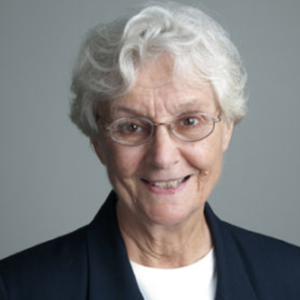
Readings:
Reading I: 1 Sam 3:3b-10,19
Psalm: 40:2,4,7-10
Reading II: 1 Cor 6:13c-15a,17-20
Gospel: John 1:35-42
Nowadays we seem to be dissatisfied if we are considered ordinary. We seek to be the first or the best, or at least to belong to the group that is first or best. Yet, most of us are really quite ordinary people living ordinary lives. Despite this, there need be nothing ordinary about being ordinary. With this Sunday we enter the interlude between seasons. Christmas with its excitement and glitter is behind us and the sober experience of Lent followed by the glory of Easter is in the future. In the liturgical year, this is the period known as Ordinary Time. It is the time during which we reflect on the very ordinary ways that God enters our lives, thus making them extraordinary.
The first reading recounts an event in early life of the prophet Samuel. As a young boy he lived in a religious shrine, entrusted to the keeping of the old priest Eli. One very ordinary evening he went to sleep and was awakened by a very strange occurrence. Both he and Eli to whom he reported this occurrence misunderstood what was happening. He thought that Eli was calling him; Eli thought that the boy was mistaken. Who could have imagined that God was calling Samuel out of sleep? Furthermore, who would have thought that God would choose a young boy, one with no power or prestige, someone whose chief responsibility was making sure that the light in the sanctuary was kept burning? Surely there were others more qualified.
A comparable situation is described in the gospel passage. In it Jesus appears to be so unremarkable that John the Baptist has to point him out to two of John’s disciples. In this account, Jesus does nothing that will attract attention. He does not yet have a following. And, unlike his depiction in much religious art, he does not look or dress differently. He is just an ordinary Middle Eastern man. There is no miraculous healing that amazes the crowds; there is no dramatic instruction that mesmerizes his audience. He is simply passing by the people who are standing around. It is a very ordinary scene. Yet John knows who he is and informs his own disciples of Jesus’ hidden identity: “Behold the Lamb of God.” It is only after the two disciples spend the day with Jesus that they realize how extraordinary he really is.
Perhaps what Paul describes in his Letter to the Corinthians is the most startling example of the extraordinary hidden within what is ordinary. He argues that ordinary human beings, by means of faith, are members of Christ. Their human bodies, thought weak and limited, are temples wherein dwells the Holy Spirit. He further claims that since God raised Jesus from the dead, God will also raise all those who are joined to Jesus. Paul insists here on the dignity of the ordinary human body because he is condemning the licentious lives of many of the Corinthians. He is trying to show them that their immoral behavior is violating the very bodies purchased by Christ at the price of his blood.
In these three incidents, the extraordinary was not at first apparent. It takes eyes of faith to recognize it. Both Samuel and Eli initially misunderstood the voice, but when they realized that it was God calling in the night, they accepted its message. Paul rebuked the Corinthian Christians who had lost sight of their bodily dignity and were participating in illicit practices. Those who accepted his words glorified God though the morality of their lives. Initially the disciples of John saw nothing unusual in Jesus. However, they listened to John’s advice, spent the day with Jesus, and eventually became his disciples. At first, all these people saw only what was obvious. However, in each instance God called them to deeper insight through the agency of another.
We are not unlike these biblical people. We do not always look beneath the surface, and so we often miss the extraordinary in what is ordinary. We do not hear the voice of God in the voices of others calling us to great things, to sacrifice ourselves for our children, to give of ourselves to aging parents, to show concern to friends or neighbors. We do not recognize Christ in the thoughtful people with whom we work, the honest people with whom we do business, the understanding people who help us in simple ways, the ordinary people with whom we live.
It takes only a little effort to attune our ears to hear the voice of God, to adjust our sight to recognize Christ in our midst. As members of Christ, we have the Holy Spirit dwelling within us. This same Spirit urges us to reach out to others. What we accomplish may not be as impressive as what was accomplished by Samuel, or the first disciples of Jesus, or Paul. Results are up to God. All we have to be concerned about is that we recognize the call of God in the ordinary events of life and we respond: ‘Here I am. Did you call?’
Dianne Bergant, CSA
Carroll Stuhlmueller, CP, Distinguished Professor Emerita of Old Testament Studies